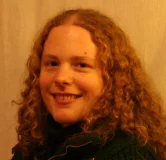UCD School of Psychology
3rd Annual Aidan P. Moran Research Day
December 2nd, 2024, UCD Village Auditorium and Balcony
10am to 4pm
10.00 Arrival – tea and coffee
10.15 Welcome and introduction (Klaus Kessle
10.30 Session 1, Chair: Prof Klaus Kessler
10.30-10.45: Dr Christine Linehan: The UCD Centre for Disability Studies
10.45-11.00: Dr Meadhbh Brosnan: Enriched environments and brain plasticity
11.00-11.40 Keynote speaker, Dr Alison Darcy (Woebot): The future of AI-supported mental health
11.40 – 12.00 Break
12.00 Session 2, Chair: Dr Christine Linehan
12.00-12.15: Dr Katie Gilligan-Lee: Make Space: The role of spatial cognition in Science, Technology, Engineering and Maths (STEM) success
12.15-12.30: Alice Bazzurro (University of Genoa): Impact of distractors on sustained attention and inhibition in children with ADHD
12.30-12.45: Dr Michael (Mick) O’Connell: Fee-paying schools and university access: An analysis based on Growing Up in Ireland data
12.45 LUNCH with poster session (on balcony)
13.30 Session 3, Chair: Dr Meadhbh Brosnan
13.30-14.15 Keynote speaker, Prof Laura Shapiro (Aston University): The long view of reading: how can learning to read become reading for life?
14.15-14.30: Dr Jaroslav (Jarda) Gottfried: Diabetes and depressive symptoms across European countries
14.30-14.45: Dr Áine Ní Choisdealbha: Effects of motor interference on infant perception of others' actions
14.45-15:00 Afternoon tea/coffee
15.00 Session 4, Chair: Dr Ciara Greene
15.00-15.15: Dr Glen Jankowski: Decolonizing Psychology
15.15-15.30: Prof Suzanne Guerin: Developing an international comparative study on assisted dying
15.45-16.00: Prof Klaus Kessler: Reading other’s minds: dissociating two core mentalizing processes
16.00 Closing remarks (Klaus Kessler)
Dr Alison Darcy (Woebot)

Alison is a clinical research psychologist and health tech designer who has reimagined how psychotherapy can be delivered for the way we live today. Her deep clinical expertise, pioneering mindset, and passion for accessible design are grounded in a 25 year track record studying and developing solutions that engage people in a therapeutic process. Alison’s training at University College Dublin (UCD), Stanford School of Medicine, and with the American Psychiatric Association, along with her experience leading AI pioneer Andrew Ng’s Health Innovation Lab, helped her advance the shift from conventional face-to-face therapy to complementary AI-powered interventions. In 2017 she introduced the first scientifically-informed mental health chatbot, Woebot, to make high quality therapy radically accessible. Alison is a vocal advocate for the safe and effective use of AI in healthcare. She also established the practices for Woebot studies and trials that have helped push the entire field forward, and made Woebot Health the single most mentioned digital therapeutics company in the peer-reviewed scientific literature today. Named to the inaugural (opens in a new window)TIME100 AI List recognizing the 100 most influential individuals advancing AI, and the recipient of the (opens in a new window)2023 UCD Alumni Award in Social Sciences, Alison is also an Adjunct Faculty member in the Psychiatry and Behavioral Sciences Department of Stanford’s School of Medicine.
Synopsis:
Mental healthcare has not evolved meaningfully since the development of CBT in the 1960’s and the basic architecture of patient and therapist meeting in a room has been in place since Freud. But we live in a fundamentally different world today; one that is fast paced, tech enabled and, for better or worse, constantly “connected”. One of the more intuitive ways that we can now interact with technology is through conversational agents, or AIs. At Woebot we’ve been developing this technology in service of human health, deconstructing therapeutic approaches and rebuilding them in a way that people can access as they live their lives. Eight years on, this talk will track the “lightbulb” moments that lead me from the Postgrad room in UCD, to founding a company that uses AI to make therapy radically accessible.
Dr Laura Shapiro (Aston University)
Despite huge advances in the teaching of early reading, our research shows that many secondary school students lack sufficient reading proficiency to access age-appropriate school and leisure reading (Shapiro et al., 2023). Recognition that reading is a long-term developmental process may be key to raising attainments and increasing young people’s enjoyment of reading. In this talk I will highlight the importance of targeted support for young children struggling to learn to read (Webber et al., 2023) and explain that even with quality early support, some children will show late-emerging reading needs or continue to experience difficulties into secondary school. To accurately tailor support for older students, we need to understand the nature of their difficulties. For example, a young person may be capable of decoding letters into sounds but struggle to do this quickly enough to keep up with the rest of the class. Or they may decode words fluently but struggle to comprehend what they are reading. These needs can be identified using diagnostic assessments that guide teachers to select appropriate support. Potentially an even bigger challenge is how to develop a “culture of reading” in schools. Our research shows that reading proficiency is a key driver of the amount children choose to read (Shapiro et al., 2023). However, proficiency alone is not enough: leisure time reading is a niche activity even for proficient readers. I will end by outlining recent research in primary schools which suggests a promising approach to creating a reading culture and discuss how we can create a dialogue with teachers and young people to inform research into encouraging reading in secondary schools.
References
Shapiro, L.R., Ricketts, J., Burgess, A. & van der Kleij, S. (2023). Reading and Vocabulary: Exploring how Skilled Independent Reading Supports Vocabulary Learning in Primary and Secondary School. Nuffield Foundation Public Output. Aston University. (opens in a new window)https://www.aston.ac.uk/research/hls/cognition-and-neuroscience-research-group/rav-project
Webber, C., Patel, H., Cunningham, A., Fox, A., Vousden, J., Castles, A., & Shapiro, L.R. (2024). An experimental comparison of additional training in phoneme awareness, letter‐sound knowledge and decoding for struggling beginner readers. British Journal of Educational Psychology, 94(1), 282-305. (opens in a new window)https://doi.org/10.1111/bjep.12641
| Poster |
Name |
Title |
| 1 |
Bridget O’Mahony |
The impact of rhythmic skills in reading and spelling in school-children: A meta-analytical review |
| 2 |
Niall Costello |
Investigating the effects of occupational complexity on change in a general processing speed factor in older adults |
| 3 |
Eilín de Paor |
School to adult life transition: Perspectives of young adults with intellectual disabilities and their families |
| 4 |
Clara Stein |
Cognitive reserve in multiple sclerosis: The role of depression and fatigue |
| 5 |
Elaine Lowry |
Unmet psychosocial needs in adults at high hereditary cancer risk |
| 6 |
Marian (Mya) Myatt Clarke |
Models and theories of grief and chronic pain: A scoping review |
| 7 |
Tobias Constien |
Toddlers’ Executive Development and Pretend Play (TEDDY) |
| 8 |
Anja Stanojlovic |
Association between the physical environment and psychotic experiences: A co-twin control study |
| 9 |
Isabelle Nic Craith |
A systematic review of the relationship between national identity content and attitudes and behaviours towards immigrants among children, adolescents and young adults |
| 10 |
Finn Brady |
TBA |
| 11 |
Shannon Rosbotham |
Does socioeconomic status moderate the spatial-maths association? An insight from Irish DEIS and private schools |
| 12 |
Alice Bazzurro |
Impact of distractors on sustained attention and inhibition in children with ADHD |
| 13 |
Abby O’Connell |
TBA |
| 14 |
Elaine Brennan |
Healthcare professionals’ discussion of loss and grief with parents of children with life-limiting severe neurological impairment: Scoping review |
| 15 |
Jessica White |
TBA |
| 16 |
Anton? (mabe) |
TBA |